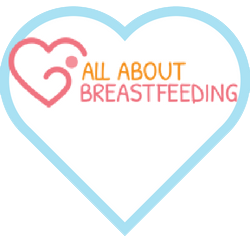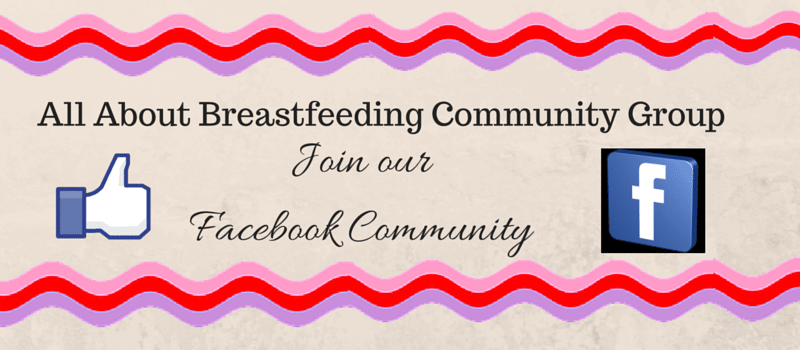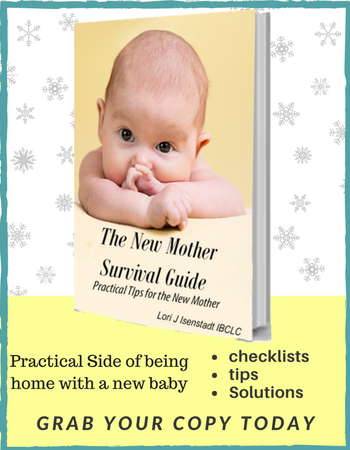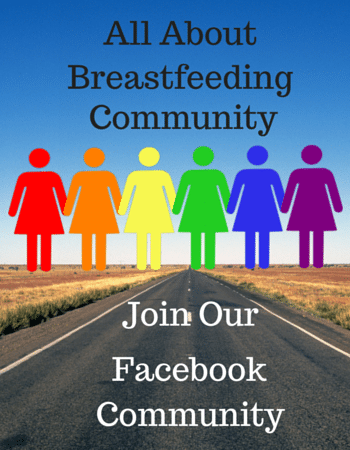Episode 322
This week is going to be a continuation of last Fridays show in which I talked about some of the common worries parents have about breastfeeding.
You were that breastfeeding is going to hurt.
You worry if it is safe to take medication and continue to breastfeed.
You also worry if you are going to be able to make enough milk for your baby or babies.
I want you to know that you are not alone in your worries. These concerns are actually quite normal and I am happy to say that you can learn how to overcome your worries on these issues. If you missed that show, go back and listen to Episode # 320.
Lots of parents are concerned about issues related to bonding with your baby. Moms worry that if they are spending all the time feeding their baby and this is how they bond with their baby, well they worry that their partner will feel left out and they worry about how is their partner going to bond with their baby? My answer: Very, very, very easily.
So what exactly does the phrase “bonding with your baby really mean?
For some reason we tend to equate feeding our baby with being the only way to bond with babies. Sure, breastfeeding mothers are spending a lot of time holding, touching, cooing while they are feeding their babies and this definitely helps with bonding to your baby. While this term “bonding with your baby” gets thrown around a lot, it basically is describes the special closeness that develops between a baby and her parents. Moms do not have to feel they need to begin pumping so they have milk in a bottle for their partners to bottle feed their baby.
Some people think that the bonding between a mother and her baby happens automatically For some, you feel this intense love for your baby as soon as you conceive them, for others you bond with your baby during your pregnancy, for others, it is the moment you look into their eyes when they are born. For many parents, bonding is a gradually process that happens over days, weeks and months.
Knowing that bonding happens over time, will help you to understand that feeding a baby is just one of the many ways parents bond with their baby. Here are some ways that you can help to easily facilitate bonding with your baby. For some, these will happen naturally. For others, you do have to be thoughtful about it and plan on working at bonding with your baby. That is fine. There is nothing wrong with having to work at something in the beginning. Very soon, it will become second nature to you.
If at all possible, spend as much time together as a family. It is nice for others to help out, however, you really don’t want others taking over a bulk of the responsibility of infant care, such as holding, rocking, burping, changing diapers and bathing.
Mom is breastfeeding and this takes a lot of time and energy on her part to do so. Partners can do everything else from bringing the baby to her, burping the baby in between sides, after a feeding. Partners can change diaper and help to settle baby down after a feeding. One of my favorite bonding activities is for partners to keep their baby tucked in skin to skin. Wear a baby carrier and let your baby snuggle close to you. It is a great way to nap together. They feel your skin, smell your smell, hear your voice and feel your heartbeat. You can’t get much more closer than that with your baby.
Diaper changing and bathing and rocking and soothing and comforting your baby are all ways to actively engage with your baby and are super helpful ways to bond with your baby. Notice how none of these involves a lot of effort and none of these suggestions involved feeding a baby. You will be spending so much time with your baby, that there is no way you are going to feel left out of anything.
Newborns and parents don’t always fall in love at first sight. And you know what? You have a lifetime to work on it. It’s not a race. What matters is your commitment to the daily work of being there for your baby and being the best parent you can be. By you being actively involved in all of your babies care, helps you bond with your baby and it also helps to build your confidence as their parent.
What else is a common worry?
Based on stories that friends and family may tell you, some breastfeeding moms are worried that since they are the only one feeding their baby, they will feel tied down. Moms worry that they can’t leave for an extended period of time because they need to be there to feed there baby.
Well, yeah, if your definition of being tied down is meaning that you are going to be home a lot and going to be spending a lot of time feeding your baby and taking care of your baby, then, yes, you will be tied down. This is a stage of newborn parenting and it will not last that long, but yes, you will be spending a lot of time with your baby.
Now hang in there with me as I take a few minutes to explain myself.
You may use the words tied down and I like to use the words – resting and recovering from pregnancy and birth. I like to refer to the first 6 weeks as your babymoon time. You are spending at least the first 6 weeks close to home, with your baby, learning about your babies and learning how to breastfeed. This happens so much more smoothly if you are not being bothered by having to deal with jumping right back into the life that you lead before your baby was born.
The extension of the first 6 weeks that goes well into the third month postpartum is often referred to as – The Fourth trimester. This time period covers the first 3 months of life after your baby is born.
One of the many things that I love about breastfeeding is that you need to spend a lot of time sitting and feeding your baby. This is great because rather than jump right back into life before baby and all of your activities, the 4th trimester is your gateway to resting and recovering.
it seems pretty unrealistic to expect a newborn baby to adjust to life on the outside instantly. And it is pretty unrealistic to expect new parents to adjust to their new life in a few short days or weeks. These expectations can put a lot of pressure on new parents.
You may leave your baby and go out and about, but this will keep you from getting in some good naps during the daytime. These naps are necessary as they will help you get through middle of the night feedings, which are very, very normal. Time away from your baby, is time that you are not taking care of personal needs and resting. Sleep deprivation can make you feel anxious, depressed, overwhelmed. You find it harder and hard to concentrate. It impairs your immune system, making you more susceptible to getting sick.
Being tied down to your baby, means that you are more likely to get in those naps when you can.
Being tied down to your baby, means that your postpartum body can gradually heal from pregnancy and birth.
Any pain or soreness you have will heal quicker. Postpartum bleeding will follow a normal course if you are not doing too much physical activity. Being tied down to your baby, helps you keep physicial activity to a minimum.
Being tied down helps you learn how to breastfeed and become accustomed to your babies needs. Breastfeeding takes time, patience and practice.
Let’s try and turn around your thoughts from being something that sounds so negative, like being tied down. I mean, I don’t want to ever feel like I am tied down either. Let’s look at all the days and hour and weeks you will be spending being close to your newborn as a positive thing. And I am not trying to put a spin on this or a play on word- I really mean it. Staying close to your baby for the first few months, provides plenty of opportunity for you to bond with your baby. I know we talked about that earlier. It also provides you the opportunity to practice good self care – body and mind during this crucial 4th trimester when you are adjusting to a major life change. Since we know that breastfeeding takes time, patience and practice and commitment, staying close to your baby for the first few months can be a tremendous help with learning all you can about breastfeeding.
This time period does not mean that you never leave your baby. Of course not. It just means that you will avoid being gone for long periods of time – several hours or more in which you would miss a feeding. As your body and breasts adjust to the life of a postpartum breastfeeding mother, your baby also adjusts, your partner adjusts and you realize that you are feeling much better, fairly well rested, and feeling more confident and comfortable in your role as a new mother. As this naturally evolves, so does your portability and convenience of being a breastfeeding mom.
You begin to feel more comfortable venturing out into the world during a time period that your baby might be interesting in feeding. Now you are comfortable with latching your baby on in private spaces and this begins to flow into your comfort level of breastfeeding outside your comfort zone. You have got the knack of popping your baby onto the breast whereas before you felt unsure with all the finageling you had to do. Get your pillow and stool ready for breastfeeding. Take down the bra flap, lift your shirt up or whatever else you need to do to latch your baby o n.
You are also feeling more energetic and going out and about for a few hours does not tire you out. For any moms listening who are worried about being tied down with your baby, try and adjust your mindset and look forward to this time of rest and recovery and getting to know your baby and adjusting to newborn parenting.
I often say to new parents. it is not like you are missing much. Most of the world around you as you knew it before, is all there, right at your doorstep. pretty much the same as before you gave birth. Take time to sit back and smell the roses before jumping right back into your usual routine.
Lori J. Isenstadt, IBCLC
 Lori Jill Isenstadt, IBCLC is a huge breastfeeding supporter. She has spent much of her adult life working in the maternal health field. Once she became turned on to birth and became a childbirth educator, there was no stopping her love of working with families during their childbearing years. Lori became a Birth doula and a Postpartum doula and soon became a lactation consultant. She has been helping moms and babies with breastfeeding for over 25 years. Lori founded her private practice, All About Breastfeeding where she meets with moms one on one to help solve their breastfeeding challenges. She is an international speaker, book author and the host of the popular itunes podcast, All About Breastfeeding, the place where the girls hang out. You can reach Lori by email at: [email protected] or contact her via her website: allaboutbreastfeeding.biz/contact
Lori Jill Isenstadt, IBCLC is a huge breastfeeding supporter. She has spent much of her adult life working in the maternal health field. Once she became turned on to birth and became a childbirth educator, there was no stopping her love of working with families during their childbearing years. Lori became a Birth doula and a Postpartum doula and soon became a lactation consultant. She has been helping moms and babies with breastfeeding for over 25 years. Lori founded her private practice, All About Breastfeeding where she meets with moms one on one to help solve their breastfeeding challenges. She is an international speaker, book author and the host of the popular itunes podcast, All About Breastfeeding, the place where the girls hang out. You can reach Lori by email at: [email protected] or contact her via her website: allaboutbreastfeeding.biz/contact

Listen Here
Submit a comment
your email address will not be published







